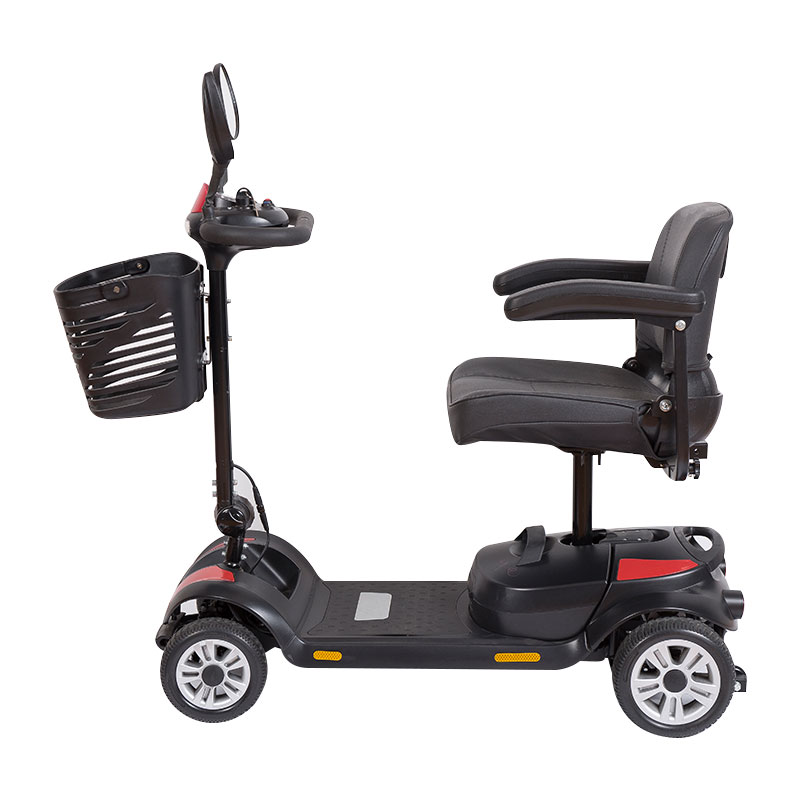Why are the 4 Wheels Elderly Mobility Scooter's LiFePO4 batteries resistant to overcharging?
LiFePO4 (Lithium Iron Phosphate) batteries used in 4 Wheels Elderly Mobility Scooters are known for their resistance to overcharging due to several inherent characteristics and safety features:
1. Voltage Range: LiFePO4 batteries have a narrower voltage range compared to other lithium-ion chemistries. This means they are less susceptible to overcharging because they can tolerate a limited range of voltage without becoming stressed or damaged.
2. Flat Voltage Discharge Curve: LiFePO4 batteries exhibit a flat voltage discharge curve, meaning their voltage remains relatively stable throughout most of the discharge cycle. This stable voltage makes it easier to monitor and control the charging process, reducing the risk of overcharging.
3. Inherent Overcharge Tolerance: LiFePO4 chemistry is inherently more tolerant of overcharging compared to other lithium-ion chemistries like lithium cobalt oxide (LiCoO2). Overcharging typically causes less stress and heat buildup in LiFePO4 batteries, making them less likely to experience thermal runaway.
4. Internal Protection Circuitry: Many LiFePO4 batteries used in mobility scooters are equipped with built-in protection circuits that actively monitor and control the charging process. These circuits can detect voltage levels and temperature and automatically shut off the charging current when the battery reaches its full charge. This prevents overcharging and helps maintain the battery's integrity.
5. Simplified Charging Process: Charging LiFePO4 batteries is generally simpler and more straightforward than other lithium-ion chemistries. The voltage required to charge LiFePO4 batteries is less critical and allows for a wider charging window, reducing the risk of overcharging.
6. Tolerance to Slight Overvoltage: LiFePO4 batteries can tolerate slight overvoltage during charging without significant degradation. This tolerance to minor voltage fluctuations offers an added layer of safety in situations where voltage regulation may not be perfect.

7. Lower Energy Density: While LiFePO4 batteries have a slightly lower energy density compared to some other lithium-ion chemistries, this lower energy density contributes to their increased safety. It means that the cells are less prone to generating excess heat during charging, which can lead to overcharging issues.
8. Safety Compliance: Many LiFePO4 battery packs are designed and manufactured to meet safety standards and regulations, including those that require protection against overcharging and over-discharging. These standards often include features to prevent hazardous situations.
The inherent characteristics of LiFePO4 chemistry, combined with protection circuitry and proper charging methods, contribute to the resistance of LiFePO4 batteries to overcharging. Users of mobility scooters equipped with LiFePO4 batteries can have confidence in their safety and reliability, even when charging the batteries over extended periods. However, it is essential to follow the manufacturer's recommendations for charging and maintenance to ensure the longevity of the battery and the safety of the user.


 English
English Deutsch
Deutsch







-3.jpg?imageView2/2/format/jp2)
.jpg?imageView2/2/format/jp2)






